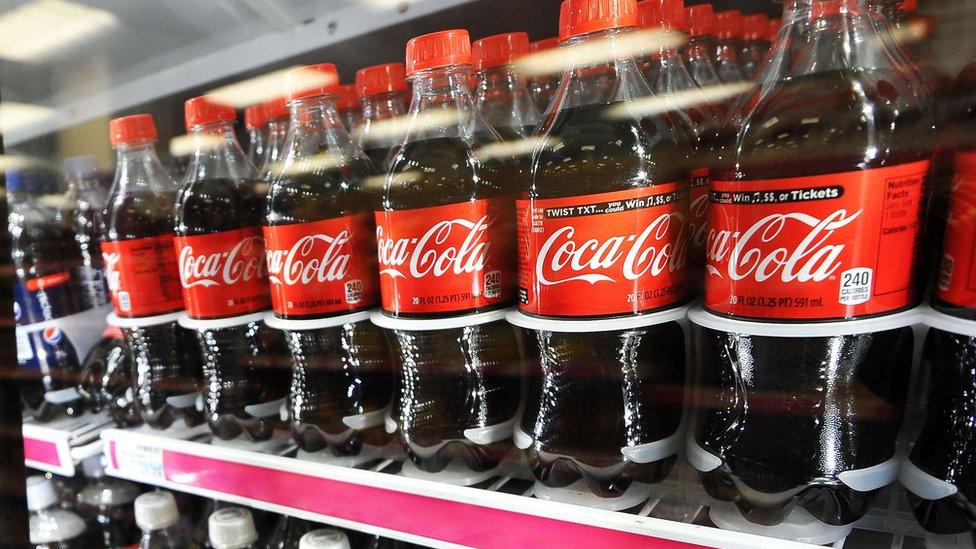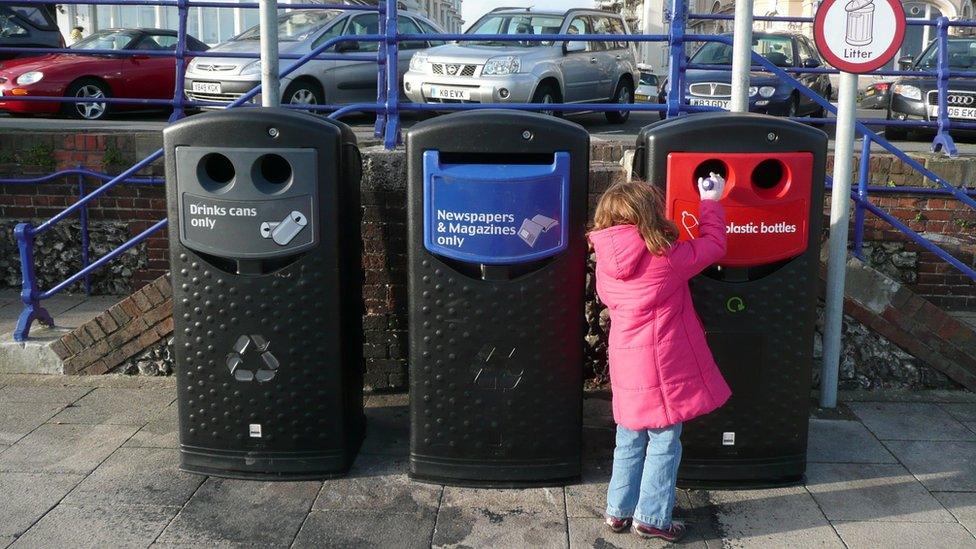Coca-Cola says plastic bottle deposit scheme should be UK-wide
- Published

Drinks giant Coca-Cola says any proposed plastic bottle deposit scheme should be UK-wide, MPs have heard.
Nick Brown, head of sustainability for Coca-Cola in Europe, said that in such a scheme the empty bottles become "a form of currency".
And the committee were told that if deposits varied between Scotland and England, people would have an incentive to cross borders to get more money.
Environment Secretary Michael Gove suggested a scheme earlier this month.
He said that it would boost recycling and in the process protect marine life from plastic waste.
The scheme involves consumers paying a small surcharge, which would be refunded when bottles are returned.
In the past Coca-Cola has opposed the idea, but in February reversed its position to support a planned scheme in Scotland.
Mr Brown told the Commons Environmental Audit Committee: "We have seen that other countries which have a deposit scheme have improved recovery rates of packaging and reduced littering, which is important to us.
"We understand that things need to change both with household waste collection and packaging on-the-go. We think a deposit scheme can work in that context."
Mr Brown stressed the importance of any scheme being UK-wide: "Packaging effectively becomes a currency in these types of schemes. The cross-border flow of materials is very important and needs to be designed into the scheme."
Overall savings
John Mayhew, Director of the Association for the Protection of Rural Scotland, which leads a campaign for a plastic bottle deposit scheme in Scotland, said it was particularly important the levels of the deposit should be the same for neighbouring countries to prevent people crossing the border to gain a greater deposit return.
However he suggested the use of barcodes could prevent bottles being cashed-in in a different country to where they were bought.
A recent report by environmental research group Eunomia found the introduction of a deposit scheme could save councils up to £35m every year.
Although councils would lose income from selling bottles from kerbside collections to recyclers, the report found the savings from reduced littering and landfill charges would outweigh this loss.
The Scottish and Welsh governments have recently said they are also considering introducing a deposit scheme.
Only 57% of plastic bottles sold in the UK in 2016 were collected for recycling, the government says.
In Denmark, which has a deposit scheme, more than 90% of bottles are returned.
But opponents say a scheme would hit consumers.
Andrew Opie, from the British Retail Consortium, said at the time of Mr Gove's announcement: "Whilst superficially appealing, the reality is deposit return vending will hit customers with an upfront charge, pushing up the cost of living to the tune of tens of millions of pounds at a time when household finances are under strain."
- Published2 October 2017

- Published4 September 2017
